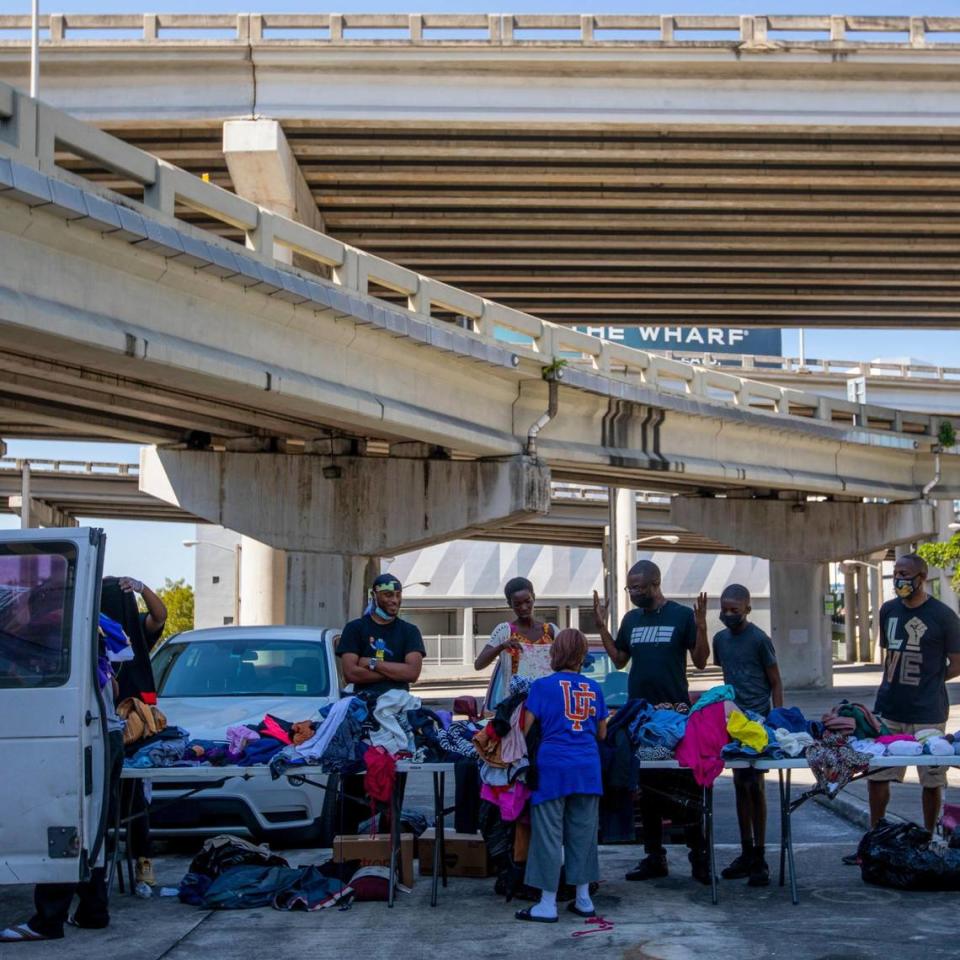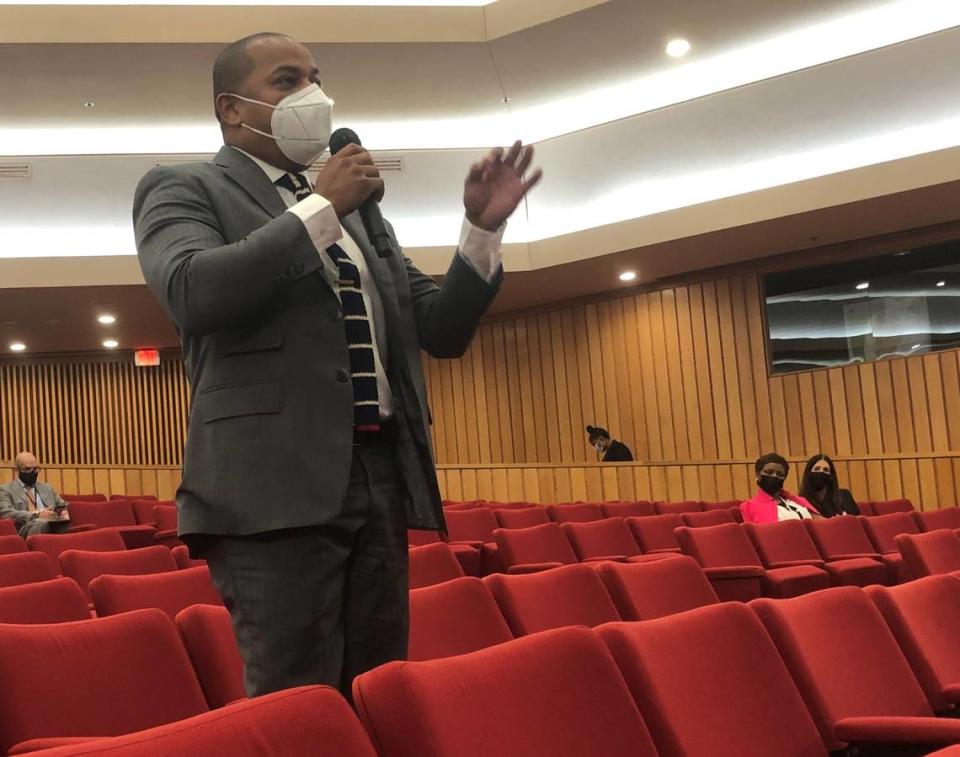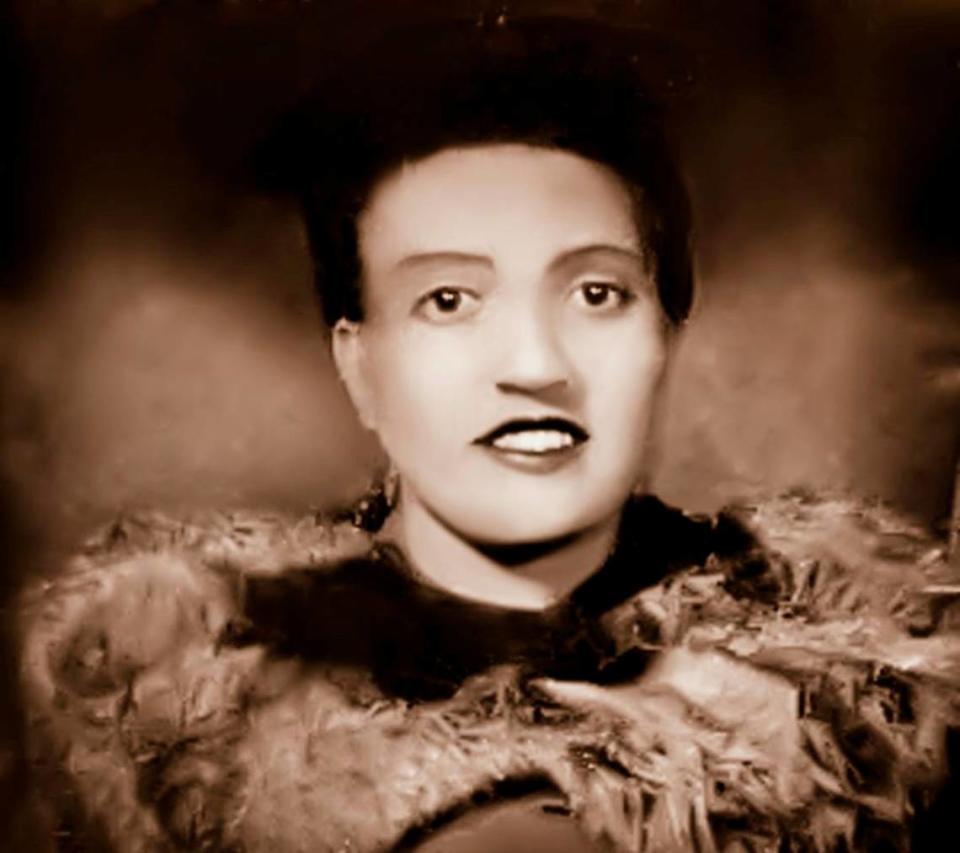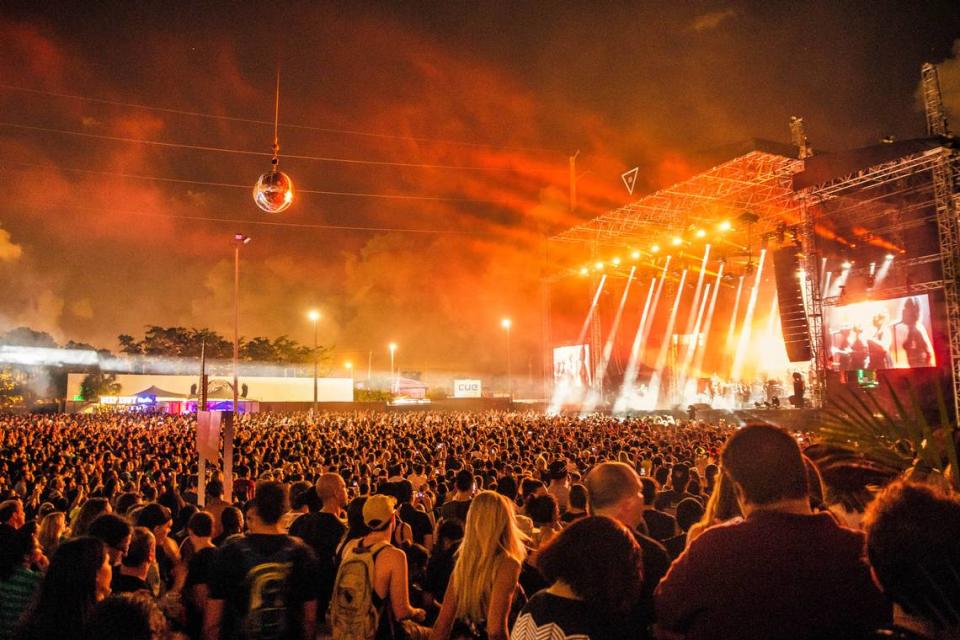The 44 Percent: Miami homelessness, Henrietta Lacks and Coconut Grove theater
- Oops!Something went wrong.Please try again later.
My pops used to pick up homeless people almost every Sunday on his way to church.
I was young at the time, no older than 10, but remember always being annoyed. My pops lived in Detroit and I would visit him almost every weekend. Hanging out with the city’s homeless community wasn’t my idea of a good time.
When I got older, I realized what my pops had done. While 10-year-old me saw raggedy clothes and wrinkled his nose, my pops saw a person, one who needed just a bit of help.

To see someone’s humanity is to look past their exterior and focus squarely on their heart. Homeless people often don’t receive that treatment. Think about the last time you had a conversation with someone living on the street.
I often think about my pops when it comes to writing about issues involving Miami’s homeless community. He moved with a certain level of compassion that really helped influence how I interact with those who are less fortunate. As Miami commissioners continue to debate the solution to the city’s issues with homelessness, I can only hope they too act with that same compassion.
INSIDE THE 305

‘Sweeping homelessness under the rug.’ Activists say they won’t obey new Miami law
Was I the only one who didn’t know that feeding Miami’s homeless community without a permit was a illegal?
I spent this past Sunday at an unsanctioned feeding to see why some activists disregard a law passed last year requiring city permits for “large” feedings. There, I discovered a group of people who believe Miami’s recent laws — including pending legislation to ban homeless encampments — seek to hide the city’s homeless problem rather than solve it. And while the veracity of that belief is something only City Hall can answer, resolutions like Commissioner Joe Carollo’s “adopt-a-homeless” program don’t engender much confidence among homeless advocates.

A theater with deep roots in the Grove’s Black community will ‘finally get its voice again’:
Coconut Grove’s Ace Theater will be reopened thanks to a $400,000 investment courtesy of the National Park Service.
Built in the 1930s, the theater was specifically for Miami’s Black community due to segregation. It served not just the historic Black neighborhood of the Grove but also people as far south as Homestead and Key Largo, according to a report presented to Miami’s Historic and Environmental Preservation Board.
Although a relic of Jim Crow South, the theater also stands as a reminder of Black Miamians’ resilience amid the Grove’s gentrification.
“The face of Grand Avenue is changing so dramatically that the Ace will probably be the only building left that says this is where we were,” Denise Wallace, a co-owner of the theater, told Miami Herald contributor Dorothy Fields. “The theater will finally get its voice again. It has been silent for so long. Now, it’s finally getting ready to speak.”

A Fla. bill would make it a crime to get within 30 feet of police. Miami-Dade objects:
Miami-Dade commissioners rejected a resolution that would have put the county’s official support behind a proposed state law to make staying within 30 feet of police officers a misdemeanor. The resolution, sponsored by Commissioner Joe Martinez, failed on a vote of 5-7. Commissioners Jose “Pepe” Diaz, René Garcia, Sally Heyman and Rebeca Sosa joined Martinez in voting yes.
The law was crafted by state Rep. Alex Rizo, R-Hialeah. Although Rizo’s motive was to legally mandate a buffer between officers and civilians, activists like Black Collective Chair Francesca Menes saw it as a way to limit minorities’ ability to videotape police wrongdoing.
“Who are the communities most likely to pull out their phones? The racial overtones are there,” Menes told the Miami Herald’s Doug Hanks. “It’s very clear who will be impacted by this.”
OUTSIDE THE 305

W.H.O. celebrates Henrietta Lacks, whose illegally taken cells led to significant medical advances:
The entire medical field owes Henrietta Lacks a debt of gratitude. And more than seven decades after her death, the World Health Organization recognized her contributions with the Director General Award, which her son Lawrence Lacks received Wednesday.
Lacks’ story is as American as they come.
While Lacks laid in a bed dying of cervical cancer, doctors at Johns Hopkins Hospital took her cells without her consent and gave the sample to researchers for experimentation. That study would change the medical field forever:
The cells thrived and multiplied in the laboratory, something no human cells had done before. They were reproduced billions of times, contributed to nearly 75,000 studies and helped pave the way for the HPV vaccine, medications used to help patients with H.I.V. and AIDS and, recently, the development of COVID-19 vaccines.
It’s about time Lacks was recognized. Now, her family is fighting to be compensated as well.
On Oct. 4, her descendants sued Thermo Fisher Scientific, a biotechnology company that they accused “of making a conscious choice to sell and mass produce the living tissue of Henrietta Lacks,” according to the federal lawsuit.
The family said it was demanding that Thermo Fisher pay $9.9 million and “disgorge the full amount of its net profits obtained by commercializing the HeLa cell line” to Ms. Lacks’ estate.
HIGH CULTURE

Here are the acts that Miami should check out at III Points Festival this weekend:
Ladies and gentlemen, happy III Points week!
The festival returns to Wynwood on Friday with a lineup for the ages. Some of the highlights include Wu-Tang Clan, Kaytranada and Jamie XX.
I wrote a brief piece on who I’m excited to see so be sure to check it out. Also keep it locked to my social media where I’ll be giving you a behind-the-scenes look at the festivities.
Where does “The 44 Percent” name come from? Click here to find out how Miami history influenced the newsletter’s title.

